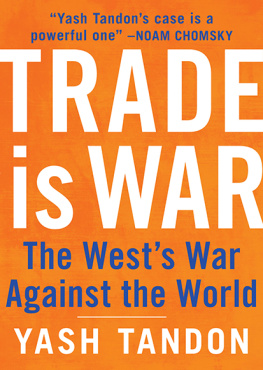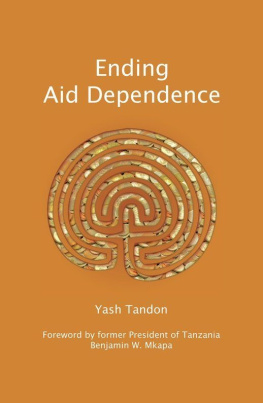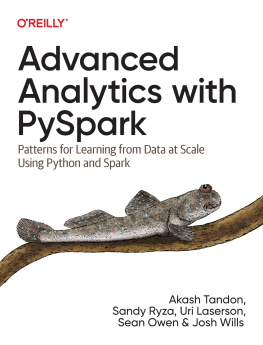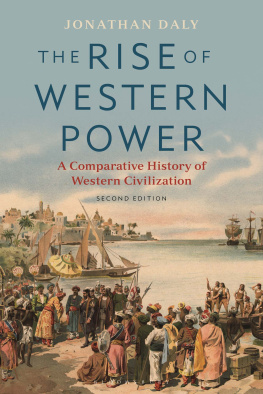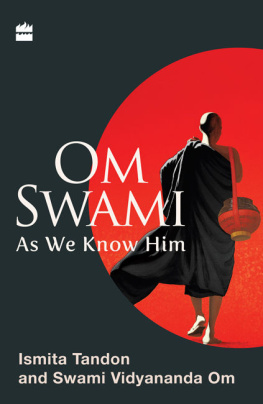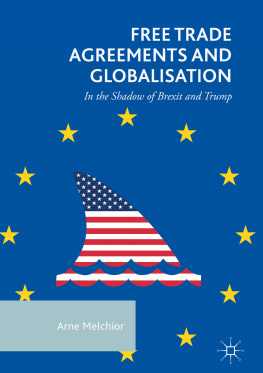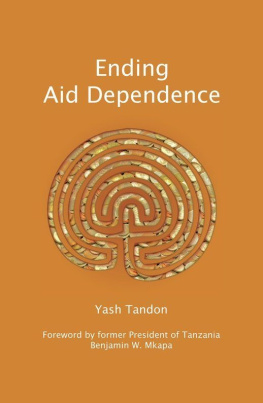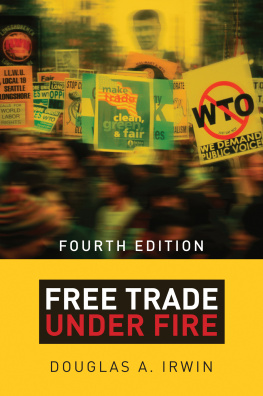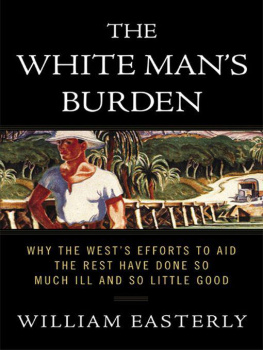Yash Tandon - Trade Is War: The Wests War Against the World
Here you can read online Yash Tandon - Trade Is War: The Wests War Against the World full text of the book (entire story) in english for free. Download pdf and epub, get meaning, cover and reviews about this ebook. year: 2014, publisher: OR Books, genre: Politics. Description of the work, (preface) as well as reviews are available. Best literature library LitArk.com created for fans of good reading and offers a wide selection of genres:
Romance novel
Science fiction
Adventure
Detective
Science
History
Home and family
Prose
Art
Politics
Computer
Non-fiction
Religion
Business
Children
Humor
Choose a favorite category and find really read worthwhile books. Enjoy immersion in the world of imagination, feel the emotions of the characters or learn something new for yourself, make an fascinating discovery.
- Book:Trade Is War: The Wests War Against the World
- Author:
- Publisher:OR Books
- Genre:
- Year:2014
- Rating:5 / 5
- Favourites:Add to favourites
- Your mark:
- 100
- 1
- 2
- 3
- 4
- 5
Trade Is War: The Wests War Against the World: summary, description and annotation
We offer to read an annotation, description, summary or preface (depends on what the author of the book "Trade Is War: The Wests War Against the World" wrote himself). If you haven't found the necessary information about the book — write in the comments, we will try to find it.
Trade Is War: The Wests War Against the World — read online for free the complete book (whole text) full work
Below is the text of the book, divided by pages. System saving the place of the last page read, allows you to conveniently read the book "Trade Is War: The Wests War Against the World" online for free, without having to search again every time where you left off. Put a bookmark, and you can go to the page where you finished reading at any time.
Font size:
Interval:
Bookmark:



2015 Yash Tandon
Published by OR Books, New York and London
Visit our website at www.orbooks.com
First printing 2015
All rights reserved. No part of this book may be reproduced or transmitted in any form or by any means, electronic or mechanical, including photocopy, recording, or any information storage retrieval system, without permission in writing from the publisher, except brief passages for review purposes.
Cataloging-in-Publication data is available from the Library of Congress.
A catalog record for this book is available from the British Library.
ISBN 978-1-939293-81-7 paperback
ISBN 978-1-939293-82-4 e-book
Typeset by AarkMany Media, Chennai, India.
TO THE MEMORY OF MATAJIMY MOTHER
ACKNOWLEDGMENTS
I take the publication of this book as an opportunity to acknowledge my debt to countless people who helped shape my life and thoughts but who bear no responsibility for my failures and shortcomings.
First, those who are with us now only in spirit, but whose infinite and timeless wisdom has guided and educated us through centuriesAmlcar Cabral, Buddha, Che Guevara, Christ, Dani Nabudere, Frantz Fanon, Guru Nanak, Hugo Chvez, Julius Nyerere, Kwame Nkrumah, Lenin, Mahatma Gandhi, Mao, Martin Luther King, Marx, Nelson Mandela, Prophet Muhammad, Prophet Moses, and Simn Bolvarto mention only some among countless others.
Then, those who have joined usin action or solidarity-to challenge the globalised trade warriors. These includeAfrica Kiiza, Aileen Kwa, Aminata Traore, Arndt Hopfmann, Ali Mchumo, Amedee Darga, Benee Bunsee, Benjamin Mkapa, Dauti Kahura, Demba Dembele, Edward Oyugi, Edward Rugumayo, Fatma Alloo, Firoze Manji, Francine Mestrum, Gacheke Gachihi, Godfrey Kanyenze, Helene Bank, Horace Campbell, Issa Shivji, Jane Nalunga, Jean Ziegler, Lazare Ki-Zerbo, Mark Weisbrot, Martin Khor, Matt Meyer, Moeletsi Mbeki, Mukhisa Kitui, Nathan Irumba, Oduor Ongwen, Peter Anyang Nyongo, Peter Lunenborg, Riaz Tayob, Samir Amin, Timothy Kondo, Xuan Li, Vandana Shiva, Vasanthan, Vikas Nath, and many more.
My publishersColin Robinson of OR books; Julie Duchatel of Centre Europe-Tiers Monde (CETIM), who also translated the book into French; and Walter Bgoya of Mkuki na Nyota. They pushed me all along to provide reason and evidence for my argument that trade is war, and to refine my language and syntax.
To my publishing agent, friend, and advisor, Roger van Zwanenberg, I am particularly grateful; without his persistent encouragement and commitment this book would not have seen the light of day.
Last but not least, I owe my debt to my family, among them especially, Nidhi, Vivek, and Maya. As for my wife of over a half century, Mary, words of thanks do not suffice to describe your painstaking editing of several drafts of the book, but, above all, your love and infinite patience and tolerance.
PREFACE
Carlos Lopes, Executive Secretary,
United Nations Economic Commission for Africa
The narrative about the global economy has changed so much that the distinction that used to be made between international economics and development economics has become laughable. Despite many universities sticking to their old disciplines, the evidence of the change is so vast as to make the views on the economies of a particular group of countries dominating the global space irrelevant. The emergence of China as an economic superpower completely changed perceptions. Todays landscape includes many new actors from what is conveniently categorised as the Global South, clearly marking the distinction from previous times.
The new distribution of wealth and power is admitted by all. The establishment of a G20, in the aftermath of the 200809 global financial crisis, is a clear indication of the need to review, enlarge, and promote a new economic governance of global affairs. The G20 is a model that is based on the principle of GDP size (although with fine adjustments)a principle that can be, and is contested but that reflects, nevertheless, the change towards a new reality. The same call has been made regarding the governance of Breton Woodss institutions, with more modest changes. It is undeniable that the Global South influence is increasing. The establishments of the BRICS as well as the Chinese New Infrastructure Bank are also significant events.
World merchandise exports have more than tripled over the last two decades and reached US$ 18 trillion in 2012, with a quarter of that trade comprising exports among developing countriesthe so-called South-South tradewhich reached a record US$ 4.7 trillion, according to UNCTAD. In 1995, developing economies traded 42% of their exports among themselves. In 2013, they traded 57% among themselves. According to the IMF, South-South trade today accounts for almost half of the total trade of China, and almost 60% of the total trade of India and Brazil. What is more relevant, the South-South trade of each of these countries will continue to outstrip their trade with the rest of the world all the way through 2050, according to IMF forecasts.
Africa is a chief example of this trend: between 2001 and 2011, total trade (exports and imports) between African and BRICS countries grew from US$ 22.9 billion to US$ 267.9 billion. India had more than US$ 70 billion of trade with Africa in 2013.
Until a few years ago, developing countries were negligible players in outward foreign direct investment (FDI) flows. Nowadays, although traditional sources of FDIs such as the US retain their dominance, some developing and BRICS countries, notably China, have moved to become large sources of FDIs. Outward FDIs from China were virtually zero in the 1980s and reached US$ 74 billion in 2011, positioning China as the largest BRICS investor.
The size of Chinese investments in Africa is hard to measure but it is estimated at US$ 40 billion in 2014.
In no other area is the Global Souths growing influence as palpable as in trade. Trade patterns are a reflection of other mega trends such as demographic, technological, and climatic changes. The link between trade and growth improvements has been a subject of vast literature. Since the establishment of the WTO in 1995, the world economic output has grown from US$ 29.9 billion to US$ 74.9 billion in 2013. Over the same period, global trade increased by a factor of nine, according to WTO figures. The correlation between trade liberalisation and growth has been articulated in many studies. Even if one may dispute the exact basis for some of the findings, it is easy to admit that some countries in the Global South have vastly benefited from the enlargement of the trade plate.
All of the above being said, what agitates Yash Tandons mind is what is lost and not achieved; What is missed and not represented; What is possible and may be halted by obstacles. For those reasons he has elected trade as the entry for profound structural transformation in global relations. He strongly believes that we live in the capitalist-imperialist era; and in this era trade is war. The concept of war in itself is complex enough to be consensually associated with a practice like trade. Tandon stimulates the discussion on trade by using provocative jibes and bullets. Even if the reader does not agree with him it is stimulating to engage.
First one needs to know Tandon to understand where he comes from. Throughout his life he has been a fighter for justice. His engagement is well known in Africa, making him a trusted advisor to leaders as much as an organic intellectual for civil society organisations. Well informed, activist to the bone, Tandon is restless like the youth dominating his continent of Africa. Tandon does not have any professional references distinguishable from his political ones. He never hides his ideological positions and makes it his mark to confront other ideologies. One may not like, adopt, or even comprehend many of his positions. But as an approachable and intellectually-influenced personality nobody can use the excuse that Tandon does not engage. Not only does he engage, but he actually enjoys some controversies that allow a deeper understanding of issues.
Next pageFont size:
Interval:
Bookmark:
Similar books «Trade Is War: The Wests War Against the World»
Look at similar books to Trade Is War: The Wests War Against the World. We have selected literature similar in name and meaning in the hope of providing readers with more options to find new, interesting, not yet read works.
Discussion, reviews of the book Trade Is War: The Wests War Against the World and just readers' own opinions. Leave your comments, write what you think about the work, its meaning or the main characters. Specify what exactly you liked and what you didn't like, and why you think so.

